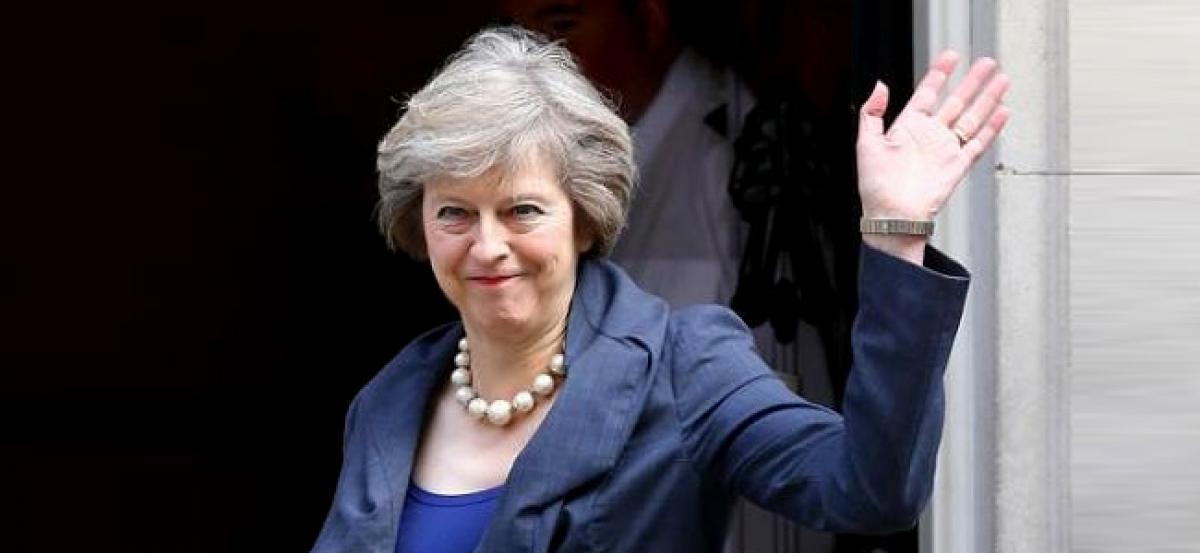Live
- AHUDA chief Varun gets grand welcome
- Instil moral values in students
- Somishetty takes charge as KUDA chairman
- Foundation partners with BBMP to revamp Bengaluru’s iconic Church Street
- World Diabetes Day observed at Gem Care Kamineni Hospital
- Rural students told to pursue higher education
- Fishery activities get a big boost in TDP budget
- Today’s welfare measures aim to empower: Nirmala Sitharaman
- Six scholars, including two women, win Infosys Prize 2024
- Gurukula zonal level sports meet concludes
Just In

Britain will on Monday outline a new, interventionist approach to balancing its heavily services-based economy for the post-Brexit era, seeking to reinvigorate industrial production and stimulate investment in technology and R&D.
LONDON: Britain will on Monday outline a new, interventionist approach to balancing its heavily services-based economy for the post-Brexit era, seeking to reinvigorate industrial production and stimulate investment in technology and R&D.
Unveiling her long-awaited 'Modern Industrial Strategy', Prime Minister Theresa May will demand closer collaboration within key industries in exchange for government support on regulation, trade and research.
May will ask businesses to work together to tackle industry-specific challenges, citing examples of successful collaboration that have helped attract overseas investment from the likes of carmaker Nissan, and enabled aerospace firms such as BAE Systems to develop a competitive edge.
In return she will pledge to reciprocate with 'Sector Deals' that address regulatory barriers, look at how trade and investment deals can be used to increase exports, and support the creation of new institutions to provide leadership, drive innovation or boost skills.
"The modern industrial strategy will back Britain for the long term: creating the conditions where successful businesses can emerge and grow, and backing them to invest in the long-term future of our country," May said in an emailed statement prior to the announcement.
"It will be underpinned by a new approach to government, not just stepping back but stepping up to a new, active role that backs business and ensures more people in all corners of the country share in the benefits of its success."
BACK IN FASHION
Since coming to office weeks after Britain's shock vote to leave the EU last year, May has pushed the once-unfashionable concept of industrial strategy to the top of her agenda, creating a new government department to lead the project, and chairing a top-level cabinet committee on the subject.
Under the banner of building an economy that distributes wealth more evenly, following decades of industrial decay in parts of Britain, the plan seeks to address a mood disenfranchisement that drove many voters to back Brexit and protect the economy from the risk that leaving the EU will limit access to its market for services like banking.
The outline of the strategy - expected to range across economic, regional, education transport and digital policy - will be set out in a consultation document on Monday, seeking input from industry.
The government said early work had been done on sector deals for a number of industries: life sciences, ultra-low emission vehicles, nuclear and creative industries. But it said it would work with any sector that could "organise behind strong leadership to address shared challenges and opportunities."
May will present the full proposals, including plans to boost the teaching of technical skills and mathematics, and a 556 million pound boost for infrastructure projects, at a specially-convened cabinet meeting in Northwest England.

© 2024 Hyderabad Media House Limited/The Hans India. All rights reserved. Powered by hocalwire.com







